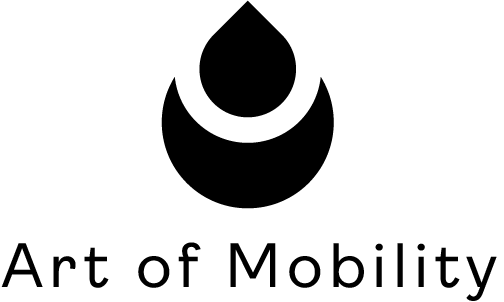
Depression is a complex mental health condition that can impact every aspect of your life, from how you think and feel to how you move and connect with others. It’s more than feeling down—it’s a deep, sometimes overwhelming experience that can make even simple tasks feel hard. Counselling in Mississauga offers a path to understanding depression and finding your way back to balance and well-being.
In this blog, we’ll explore the different types of counselling for depression, how these approaches work, and the many ways they can support your mental health and overall wellness.
Common Approaches in Counselling for Depression
Counselling for depression isn’t one-size-fits-all. It’s a personalized, evidence-informed process that adapts to your unique needs and goals. Here are some of the most common and effective counselling techniques used by therapists:
Cognitive Behavioural Therapy (CBT)
CBT is one of the most widely researched and practiced approaches for depression. It’s based on the idea that our thoughts, feelings, and behaviours are interconnected. Negative thought patterns—like self-criticism or catastrophic thinking—can deepen depression. CBT helps you identify and challenge these thoughts, replacing them with more balanced and realistic perspectives. Over time, this can help lift your mood and give you practical tools to manage challenges.
Mindfulness-Based Therapies
Mindfulness-based therapies, including Mindfulness-Based Cognitive Therapy (MBCT), combine traditional counselling with mindfulness practices. These therapies help you stay present and connected to your body and mind, reducing the cycle of rumination that often fuels depression. By cultivating awareness and self-compassion, mindfulness-based therapies support a calmer, more balanced outlook on life.
Interpersonal Therapy (IPT)
Relationships and social connections play a big role in how we feel. Interpersonal Therapy focuses on the ways our relationships impact our mood—whether through conflict, communication challenges, or major life changes like grief or role transitions. IPT helps you build healthier communication skills and strengthen your sense of belonging and support.
Psychodynamic Therapy
Psychodynamic therapy explores how past experiences and unconscious patterns might be influencing your current struggles with depression. By bringing these patterns to the surface, this approach can help you understand the deeper roots of your feelings and find new ways to relate to yourself and others.
Each of these counselling approaches can be used on their own or blended together. Your therapist will work with you to find the best fit for your goals, preferences, and personal history.
How Counselling Sessions Work
Counselling for depression is a collaborative process. Sessions are structured but flexible, adapting to how you’re feeling each day and what you need most. Here’s what you can expect during a typical counselling journey:
Your first sessions will focus on understanding your experience of depression. Your therapist will ask about your symptoms, how they affect your daily life, and what you hope to achieve in counselling. Together, you’ll identify key areas of focus—whether it’s managing overwhelming thoughts, building healthier routines, or finding ways to reconnect with joy and meaning.
From there, sessions will include a mix of talking through your feelings, exploring your thoughts and behaviours, and practicing new strategies. You might work on identifying unhelpful thought patterns, learning relaxation or grounding techniques, or setting small, achievable goals to build momentum.
Counselling isn’t just about talking—it’s about building skills and insights you can use in your daily life. Your therapist will help you develop practical tools to navigate challenges, manage stress, and support your mental health outside of the session room.
Because healing takes time, your therapist will also help you track your progress. This might include checking in on how your mood and energy are shifting, what strategies are working best, and what needs to be adjusted to keep you moving forward.
The Benefits of Counselling for Depression
Counselling for depression can offer powerful, lasting benefits that go beyond symptom relief. Here’s how it can support you:
Counselling can help improve your mood and emotional balance. By working through the thoughts and feelings that contribute to depression, you can start to feel more hopeful and in control.
Counselling also offers tools for managing stress and overwhelming emotions. Learning healthy coping strategies can help you respond to challenges with more calm and confidence.
One of the biggest benefits of counselling is the self-awareness it builds. By understanding your triggers and patterns, you can feel more in control of your life and more connected to your own needs and values.
Depression often affects relationships, making it hard to connect with others. Counselling can help you strengthen your relationships and communication skills, reducing feelings of isolation and loneliness.
Most importantly, counselling can restore a sense of agency and possibility. It helps you see that change is possible, even if it’s one small step at a time.
Integrative Care for Mind and Body
At Art of Mobility, we understand that depression isn’t just about the mind—it affects the whole person. That’s why our approach to counselling for depression is integrated. Your therapist works alongside our in-house team of movement therapists, naturopaths, and other specialists to create a comprehensive plan that supports your mental, physical, and emotional well-being.
For example, if stress and tension in the body are part of what’s driving your depression, movement therapy and hands-on treatments can help. If your nutrition or sleep habits are playing a role, our naturopathic team can offer insights and guidance. Counselling is one piece of your larger health journey, and we’re here to make sure every part of you is supported.
Personalizing Counselling for Your Needs
No two people experience depression in the same way, which is why no two counselling plans are the same. Here’s how personalization happens:
Your therapist will start with a holistic assessment—looking not just at your symptoms, but at your lifestyle, stressors, and the unique strengths and challenges you bring to the table. From there, your care plan will be tailored to your goals and preferences.
Personalization means that the work you do in counselling will always feel relevant and meaningful. Whether you’re focused on feeling more present, getting back to activities you love, or building healthier relationships, your therapist will adjust your care to meet those goals.
As you progress, your therapist will continue to check in and refine your plan. Depression is dynamic—your care should be, too. By keeping the process flexible and responsive, counselling can stay aligned with how you’re growing and healing.
Taking the First Step
Counselling for depression is about creating a safe space where you can explore, heal, and move forward. It’s a journey that starts with a single step: reaching out. At Art of Mobility in Mississauga, our team of caring professionals is here to support you with counselling that’s personal, evidence-informed, and built on trust.
If you’re ready to feel more like yourself again, we’re here to help. Contact us today to learn more about how counselling for depression can fit into your journey toward a healthier, more connected life.

